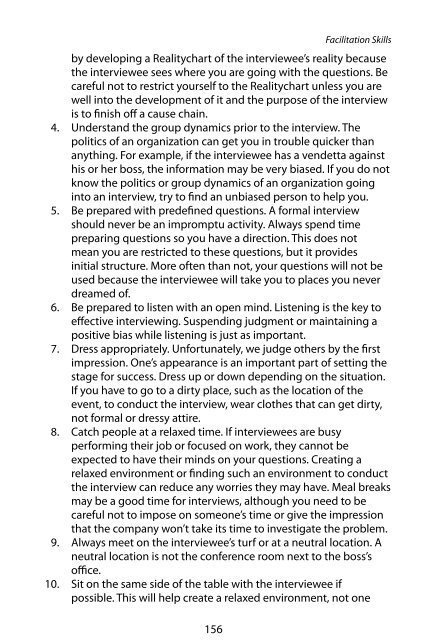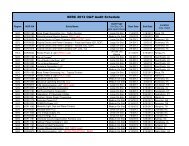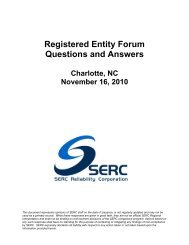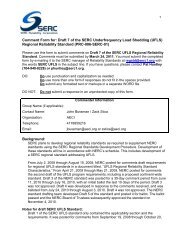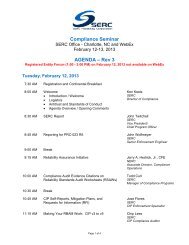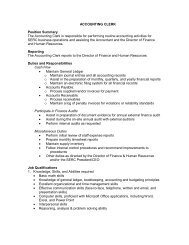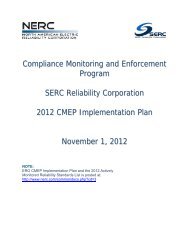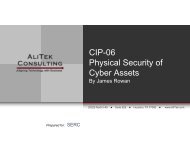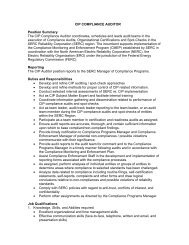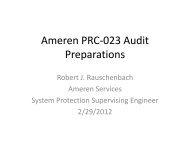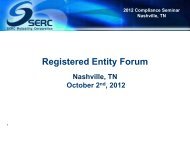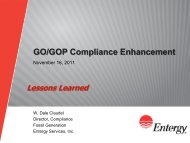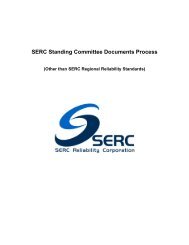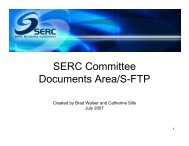RealityCharting e-book .pdf - SERC Home Page
RealityCharting e-book .pdf - SERC Home Page
RealityCharting e-book .pdf - SERC Home Page
- No tags were found...
Create successful ePaper yourself
Turn your PDF publications into a flip-book with our unique Google optimized e-Paper software.
Facilitation Skills<br />
by developing a Realitychart of the interviewee’s reality because<br />
the interviewee sees where you are going with the questions. Be<br />
careful not to restrict yourself to the Realitychart unless you are<br />
well into the development of it and the purpose of the interview<br />
is to finish off a cause chain.<br />
4. Understand the group dynamics prior to the interview. The<br />
politics of an organization can get you in trouble quicker than<br />
anything. For example, if the interviewee has a vendetta against<br />
his or her boss, the information may be very biased. If you do not<br />
know the politics or group dynamics of an organization going<br />
into an interview, try to find an unbiased person to help you.<br />
5. Be prepared with predefined questions. A formal interview<br />
should never be an impromptu activity. Always spend time<br />
preparing questions so you have a direction. This does not<br />
mean you are restricted to these questions, but it provides<br />
initial structure. More often than not, your questions will not be<br />
used because the interviewee will take you to places you never<br />
dreamed of.<br />
6. Be prepared to listen with an open mind. Listening is the key to<br />
effective interviewing. Suspending judgment or maintaining a<br />
positive bias while listening is just as important.<br />
7. Dress appropriately. Unfortunately, we judge others by the first<br />
impression. One’s appearance is an important part of setting the<br />
stage for success. Dress up or down depending on the situation.<br />
If you have to go to a dirty place, such as the location of the<br />
event, to conduct the interview, wear clothes that can get dirty,<br />
not formal or dressy attire.<br />
8. Catch people at a relaxed time. If interviewees are busy<br />
performing their job or focused on work, they cannot be<br />
expected to have their minds on your questions. Creating a<br />
relaxed environment or finding such an environment to conduct<br />
the interview can reduce any worries they may have. Meal breaks<br />
may be a good time for interviews, although you need to be<br />
careful not to impose on someone’s time or give the impression<br />
that the company won’t take its time to investigate the problem.<br />
9. Always meet on the interviewee’s turf or at a neutral location. A<br />
neutral location is not the conference room next to the boss’s<br />
office.<br />
10. Sit on the same side of the table with the interviewee if<br />
possible. This will help create a relaxed environment, not one<br />
156


